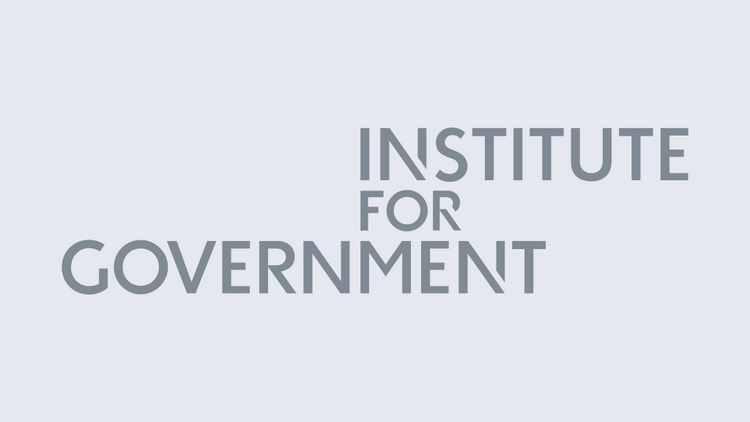Liz Truss blaming the deep state is an excuse for failure

Liz Truss made a statement that the "deep state" was sabotaging her time in charge, which seems to be a flawed claim. However, it brings up a compelling point about why some members of the Conservative party are feeling discontent after being in power for over a decade.
The fear of shadowy government forces is not a new concept and is not limited to one political group. People on different ends of the political spectrum often blame an internal enemy when they are frustrated. However, those who are quickest to accuse sinister influences are often just trying to cover up their own failures. In her new book, Liz Truss complains that she didn't realize that the establishment would use every tool available to fight against her. But the reality is that she wasn't stopped by the powerful Treasury or the Office of Budget Responsibility and there isn't a secret group of bureaucrats and bankers who manipulated the finance markets to end her time in office. Her premiership was ended because her party believed her failure was too great to continue.
Transforming A Nation Is A Daunting Task
Transforming a nation is a daunting task, but it is feasible. Leaders like Attlee, Thatcher, and Blair accomplished it to varying degrees. However, before politicians can bring change to their country, they must first secure a victory. They require a platform to voice their opinion, and a large audience that will listen. It is essential to persuade voters and gain support within their political party. Attaining political power is crucial to establish and maintain a majority in parliament. Their proposed set of modifications must be accepted and implemented. It must be designed to tackle present-day challenges. Finally, politicians must master the art of governance, creating a strategy that outlines a set of plans and organizes their goals. They must make decisions on when to include existing institutions, when to improve them, and when to disregard them altogether.
It is essential for governments to identify and implement successful projects. While this may seem insignificant, it can significantly impact relationships within and outside the government. Instead of blaming each other for failures, collaborating on successful initiatives can transform relationships. Unfortunately, in recent times, opposing factions in governments have been too quick to pin blame rather than celebrate success. However, ministers and public servants who were a part of successful initiatives like Sure Start, same-sex marriage, early privatizations, devolution, and the response to the financial crisis narrate positive stories about their experience in government. Sadly, such positive narratives have been in short supply lately.
"Effective Leaders Choose Battles, Respect Limits And Unite Systems"
Truss and her supporters hold a narrow view of democracy that disregards the complexities involved in governing, and instead focuses solely on the decisions made by elected officials. This belief suggests that any public sector not under the direct control of a democratically elected representative is not valid.
This is indeed accurate. In the United Kingdom, a democratically elected government must be in charge as long as it maintains a majority in the House of Commons. Leaders of the government require more assistance to establish clear objectives. The government must have the ability to present laws modification propositions to parliament and to execute its strategies through the management of the administration. It must be capable of assigning qualified individuals to direct public organizations and trust that such organizations will properly execute government policies. Government officials who obstruct or delay the implementation of government policies should lose their jobs.
However, the situation is not so simple. The government faces various limitations deliberately. To effectively manage the bureaucracy, ministers, similarly to leaders of big organizations, require competence, perseverance, and sound decisions. Ministers who express their dissatisfaction with the bureaucracy or the "blob" are justified when obsolete or pointless procedures impede progress. Revamping and improving the civil service and other establishments are crucial. Nonetheless, they must comprehend that the bureaucracy exists because the government is a complicated system with many intricate aspects. Successfully accomplishing tasks isn't solely about winning an argument, but rather integrating ideas for change with delivery procedures.
There are certain limits imposed by time and political circumstances. For instance, if the government and parliament decide that the UK should no longer be part of the European Convention on Human Rights, then the UK will no longer be a part of it. However, until such a decision is made, the government has to adhere to its obligations under international law. Moreover, if a prior parliament has passed certain laws, it would require significant political and practical efforts to alter the existing state of affairs.
Accountability Extends Beyond Elections
People who aim to enhance the functioning of the state and are annoyed with the government's inability should focus on advocating for greater responsibility. The absence of democratic engagement can lead to errors in the state and substandard decisions. Nonetheless, polling is solely a way to encourage responsibility within the government. Elected representatives have the authority to supervise and oversee officials' actions to ensure that they are responsible for their decisions, instead of micromanaging everything themselves. The ability to vote is powerful, but not always adequate to determine all choices.
Freely written version: Many issues arise due to the absence of various accountability measures. It's important for leaders in the public sector to face the consequences of scrutiny. They should be prepared to answer detailed questions about their choices. It's imperative to establish accountability and clearly define decision-making roles. This is what reformers need to prioritize.
Accusation can be appealing and sometimes required, but Liz Truss's false beliefs about a secret organization within the government have weakened any legitimate points she may have. It is crucial that we do not entrust the task of making gradual, intentional enhancements to our governing system to those who believe in baseless conspiracies.









































































